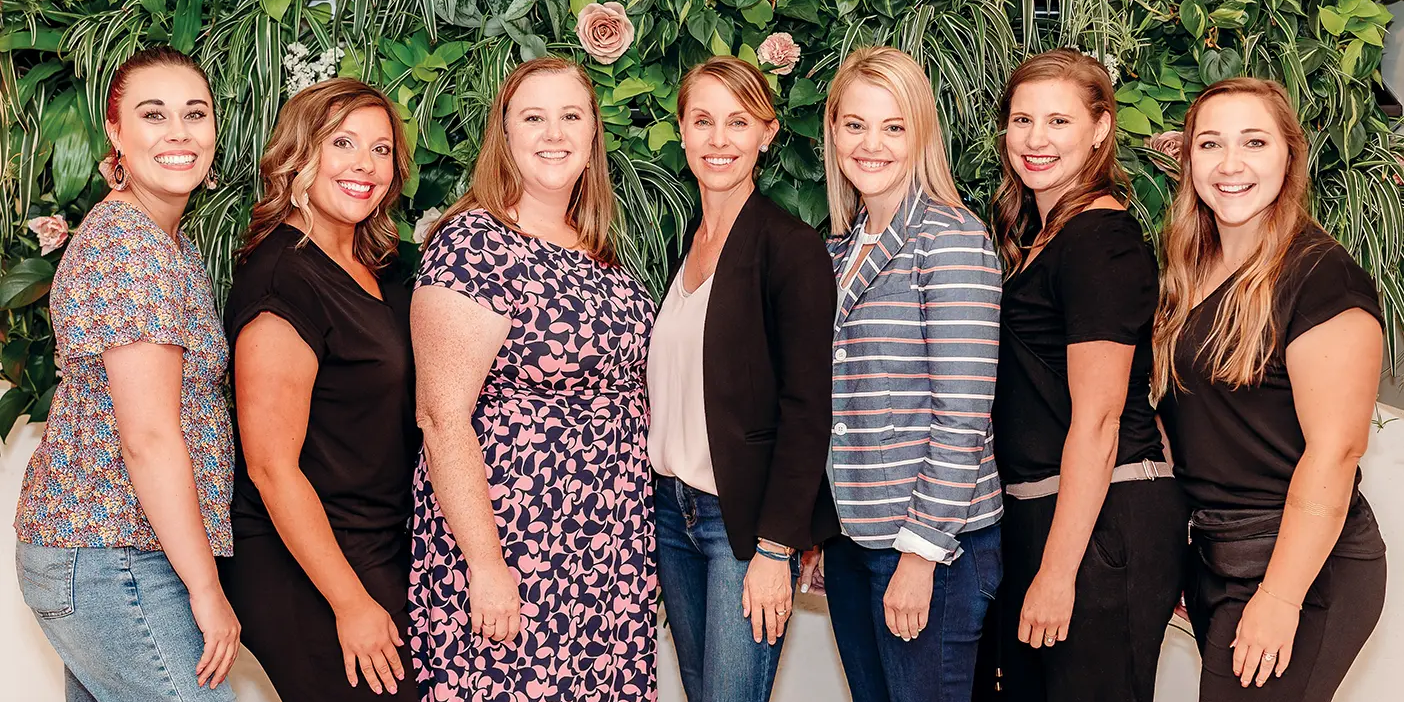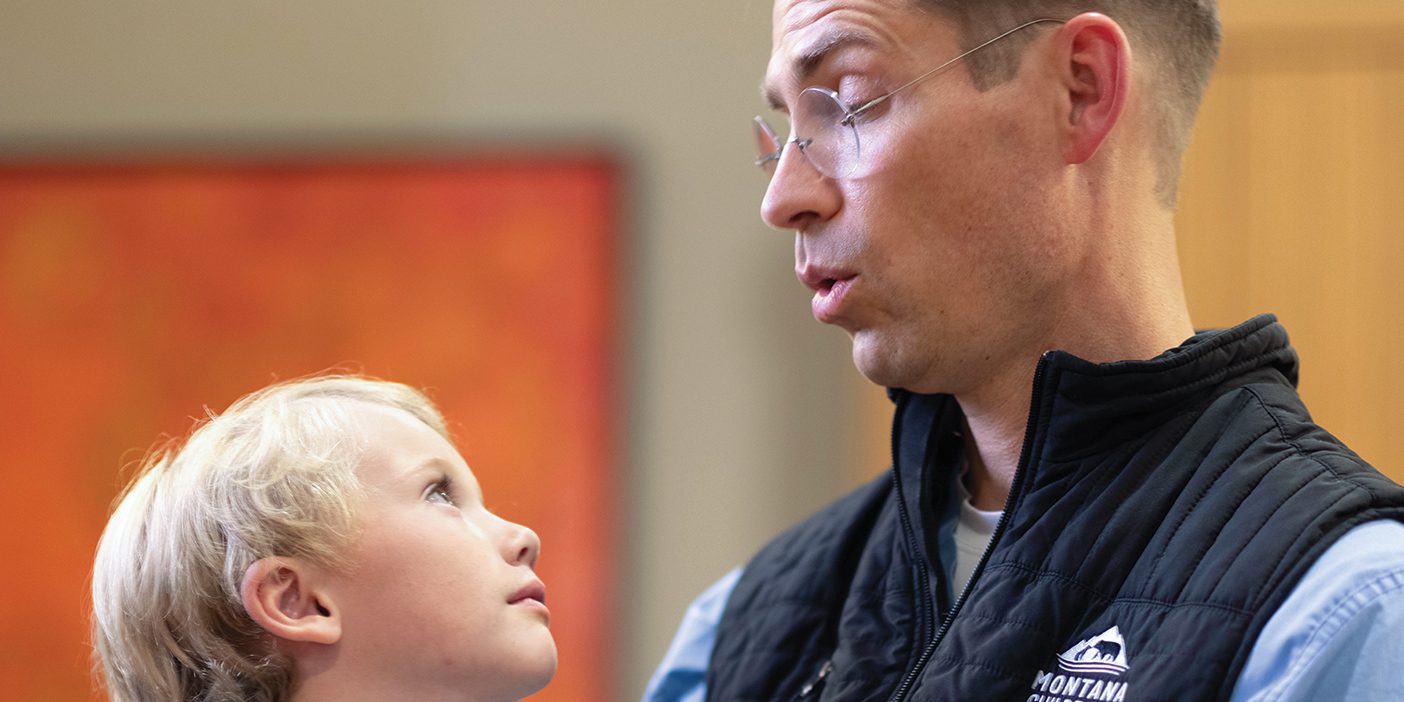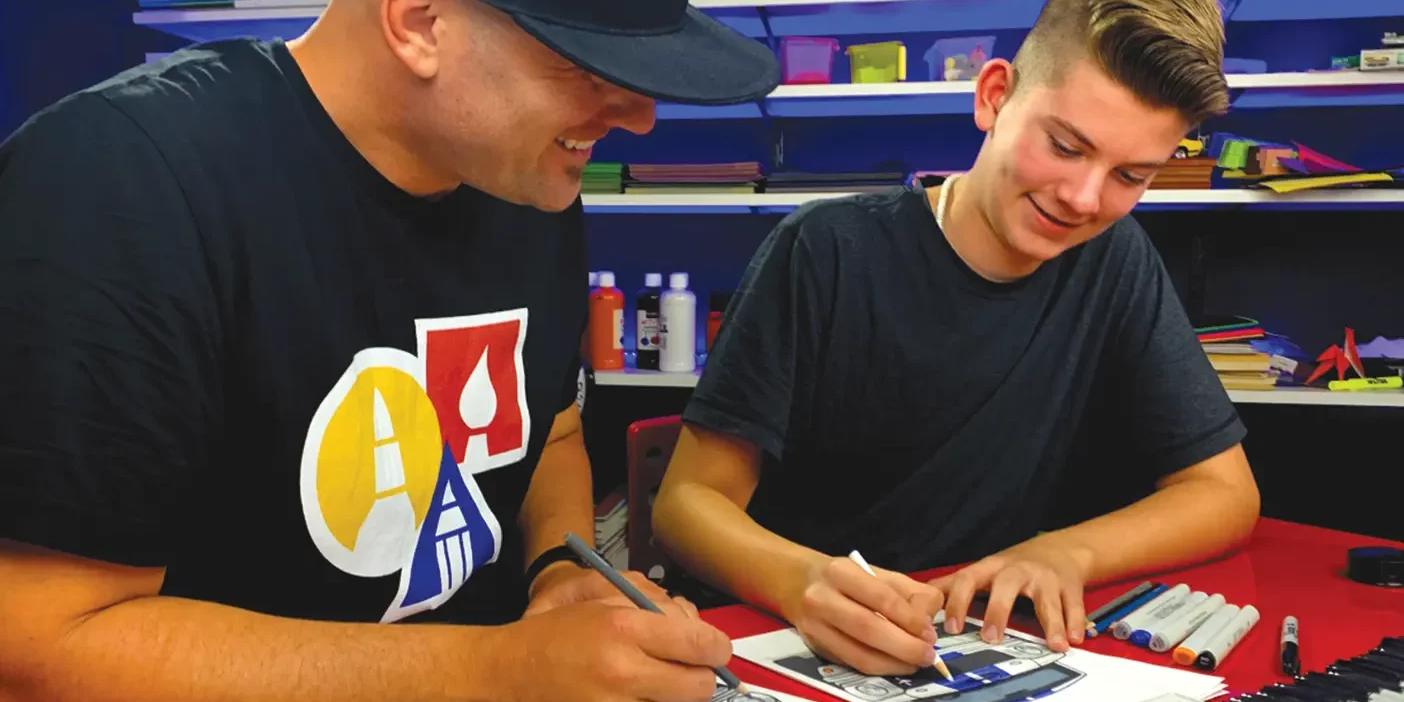A medical student takes time out to play—and serve.
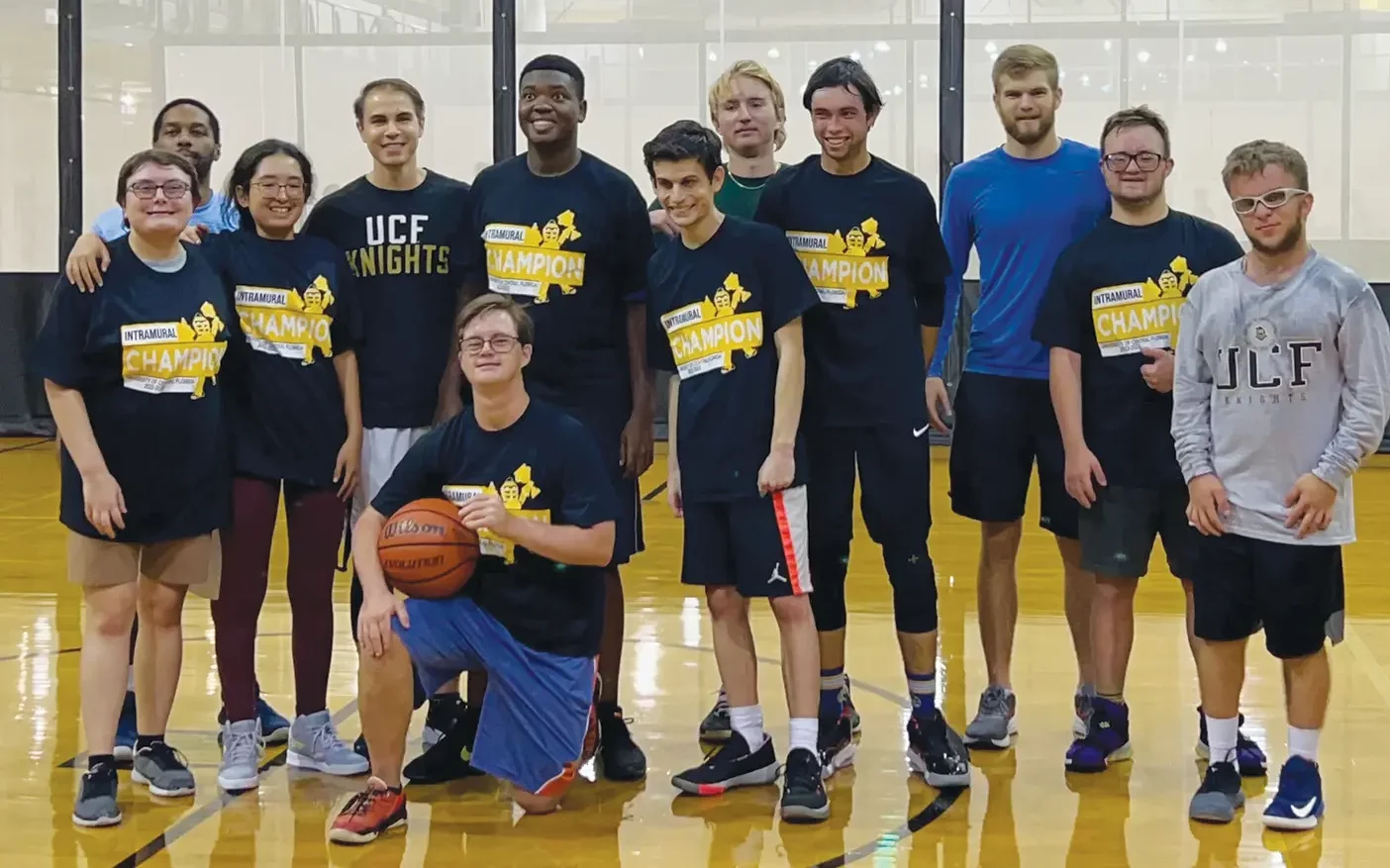
The third year of medical school means clinical rotations—long hours in the hospital to get hands-on experience with patients. Most students use their free time to relax and prepare for the next day’s work. But not BYU grad and University of Central Florida (UCF) medical student Thomas M. Knapp (BS ’19). You’ll find him on the hardwood—hooping it up with a group of athletes with special needs in the Unified Basketball League.
Basketball has held a special place in Knapp’s life since he was big enough to shoot a basket. After graduating from high school, where he played competitively, he faced a decision: continue playing basketball in college or serve a mission? When he learned the basketball program at his school of choice was being discontinued, he chose to serve a mission and was called to Samoa. “It was on my mission that I decided I was interested in pursuing a career where I could help people,” Knapp says. “Basketball has continued to be a part of my life, but at a different priority level.”
Knapp got into BYU and worked on his prerequisites for medical school. He applied to the UCF on a whim based on his knowledge of its basketball team. He was accepted, and he and his wife, Elise, moved to Florida. “I didn’t really know what I was in for,” Knapp admits. “Nobody else in my family has pursued a career in medicine.”
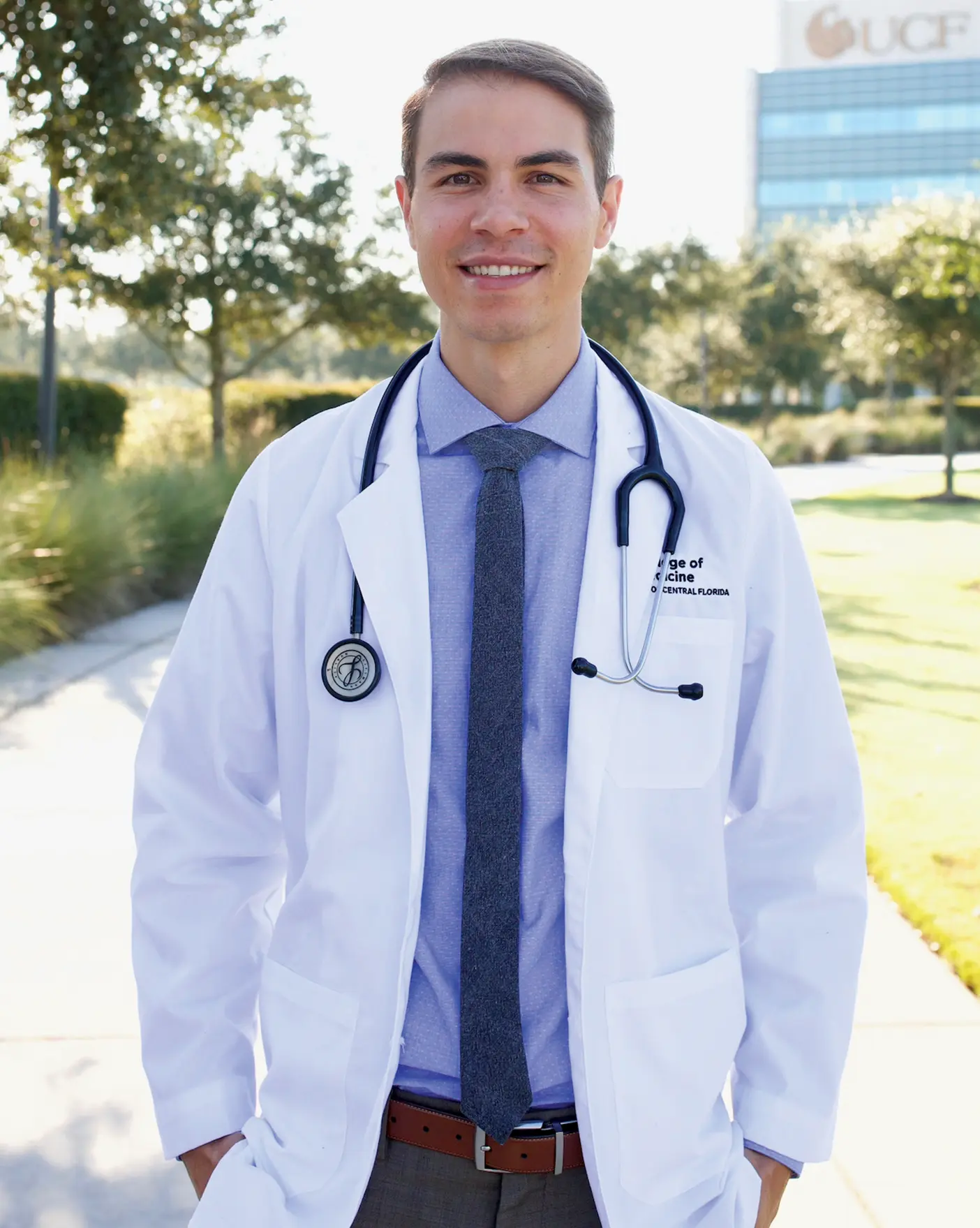
Medical students are encouraged to give service outside of healthcare. So when Knapp received an email from UCF calling for volunteers to help with a brand-new Special Olympics basketball team, he knew he had to sign up. “I saw it as a really valuable opportunity [that I] could . . . put my heart into.”
As a volunteer Knapp would play with teammates with special needs in practice and in games against other teams organized through the program. “I got very involved in helping everyone to have a good time, get a chance to play, and enjoy themselves,” Knapp says. “No one felt left out.”
Along the way Knapp developed friendships with the athletes. One of his favorite experiences was playing with the only female athlete on the team. Shy and unsure of her abilities, she had yet to shoot a basket. Knapp and a fellow volunteer wanted to see her succeed, so during their last game, they made sure she got the ball. “When she finally got a basket, she was super happy,” Knapp remembers. “We all threw up our hands and gave her a big cheer. It was a beautiful moment.”
Knapp came away from the experience changed. “I used to see basketball as something that I enjoyed for my own entertainment,” he says. “But it was really cool to finally have a chance to use it as a form of service for somebody else.”










